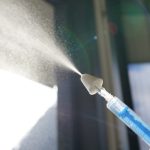“About every two hours, someone in Pennsylvania dies of an overdose,” said Dr. Michael Lynch, emergency physician and medical toxicologist at UPMC. “And beyond people dying, many people and families are significantly impacted by substance use.”
To combat this crisis, which has devastated communities across the Commonwealth, the Pennsylvania Department of Health (DOH) has named UPMC among 13 organizations to receive new investments aimed at preventing drug-related overdoses.
Over the next two years, UPMC will receive nearly $325,000 as part of the Pennsylvania Substance Use Navigation Program (PA-SUN), which will fund the screening, diagnosis and care for patients with opioid use disorder and stimulant use disorder, and support patients through their recovery.
With this funding, UPMC will place additional navigators—coordinators from UPMC Western Psychiatric Hospital—in emergency departments, “to help engage individuals with substance use disorder and advocate for them in the moment,” said Lynch, who is also associate professor of emergency medicine at the University of Pittsburgh School of Medicine. “Navigators facilitate connections to treatment—if individuals want treatment. And if the individuals are not ready for treatment, the navigators find ways to support them.”
Through an initial assessment, navigators work to understand what the patient is looking for or needs, “be it an inpatient rehab facility, an outpatient drug or alcohol treatment program, harm-reduction resources such as test strips for fentanyl and xylazine, or social supports for needs including housing, transportation, child care and access to food,” said Lynch.
The program also funds patient and provider education, increased access to medications for opioid use disorder and rescue medications like naloxone, and connection to transitional care—including the UPMC Medical Toxicology Telemedicine Bridge Clinic, which provides virtual access to providers trained in managing withdrawal syndromes and substance use disorders.
In addition to the PA-SUN program, another $50,000 will fund UPMC’s work to better understand what substances are in the drug supply in communities throughout Pennsylvania.
The funding comes from the Centers for Disease Control and Prevention (CDC) via the Overdose Data to Action in States cooperative agreement to expand drug-related overdose data-gathering and prevention efforts.
“Historically, our healthcare systems and facilities have been somewhat disjointed and not well connected to make care seamless and accessible for individuals with substance use disorder,” said Lynch. “We are doing our best to address those gaps and make it easy for people to navigate both their addiction and recovery.”








